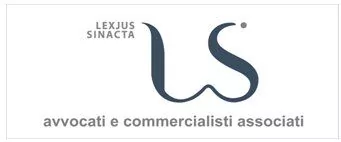A recent decision of the Italian Supreme Court1 confirms that judgments awarding punitive damages are non-enforceable in Italy, because they are contrary to public policy.
Background
The Court of Appeal of Turin had granted the enforcement in Italy of a judgment of the Supreme Court of Cambridge, Massachusetts, ordering an Italian company to pay damages up to $8 million in favor of an employee who had suffered serious injuries following an accident which had taken place inside the defendant's U.S. subsidiary.
The judgment did not contain a specific reference to punitive damages.
The Court of Appeal of Turin had considered the reasonability and fairness of the quantum awarded in favor of the plaintiff in consideration of the seriousness of the injuries suffered by the employee, with no consideration though of the criteria traditionally adopted by Italian Courts when assessing and liquidating compensatory damages, and despite the fact that the US decision did not contain any indication of the criteria followed for the quantification.
The Decision
The Italian defendants have appealed the enforcement order, and the Supreme Court overturned the ruling, on the grounds that the US decision awarded punitive damages and the Italian civil liability system is strictly compensatory, not punitive.
The decision confirms the stance the Italian Court of Cassazione has adopted for several years.
The leading case is the judgment2 whereby the Cassazione confirmed the decision of the Venice Court of Appeal, which had refused to enforce a judgment of the Federal District Court of Alabama awarding damages in favor of the parents of a young motorcyclist who had died in an accident due to the alleged failure of the helmet buckle, which had been manufactured in Italy. The Venice Court held that the award was punitive in nature, and was therefore incompatible with domestic public policy.
Here again, the Alabama judgment did not contain an explicit reference to punitive damages, but the Venice Court identified several elements which led it to conclude that the decision was in fact punitive in nature, such as the lack of statement of reasons, which made it impossible to identify the losses the Court intended to compensate for and the amount of damages awarded (which were considerably higher than the sums received by the plaintiff following settlement agreements with other defendants).
Is it possible to separate the punitive element when enforcing judgments?
Whilst the position on punitive damages seems now rather clear-cut, it is worth noting that an approach sometimes adopted by Italian Courts is to grant enforcement of compensatory damages, refusing however the enforcement of punitive elements.
An interesting decision in this respect is the judgment of the Court of Appeal of Trieste3 where the Court was requested to grant a conservatory arrest aimed at securing the recovery of a claim awarded by a Turkish judgment.
The Trieste Court ruled that the decision of the Court of Istanbul was indeed enforceable, save for the part where the judgment had awarded interests which would have been usurious under Italian law.
The Court therefore granted the arrest up to the amount coinciding with the capital sum, on the grounds that the plaintiffs would subsequently seek the enforcement of the Turkish judgment for capital alone, leaving aside interest.
Conclusions
The decision confirms an approach the Italian Court of Cassazione has adopted for several years in regard to enforcement of foreign judgments awarding punitive damages.
These judgments are generally found non-enforceable, since they are incompatible with public policy.
However, it is possible (at least in light of a few recent decisions) to seek the enforcement of a judgment awarding punitive damages when purely compensatory damages can be separated from the punitive element, and the enforcement can be therefore sought if punitive damages are set aside.
This article first appeared on the International Law Office – www.internationallawoffice.com.
Footnotes
1 Cassazione 8 February 2012, n. 1781/2012 Soc. Ruffinatti v. Oyola-Rosado.
2 Cassazione 19 January 2007, n. 1183/2007 Parrott v. Soc. Fimez.
3 Court of Trieste, 3 December 2009, DTFT v. Ayhan Nakliyat Sanayi Ve Ticaret AS.
The content of this article is intended to provide a general guide to the subject matter. Specialist advice should be sought about your specific circumstances.


